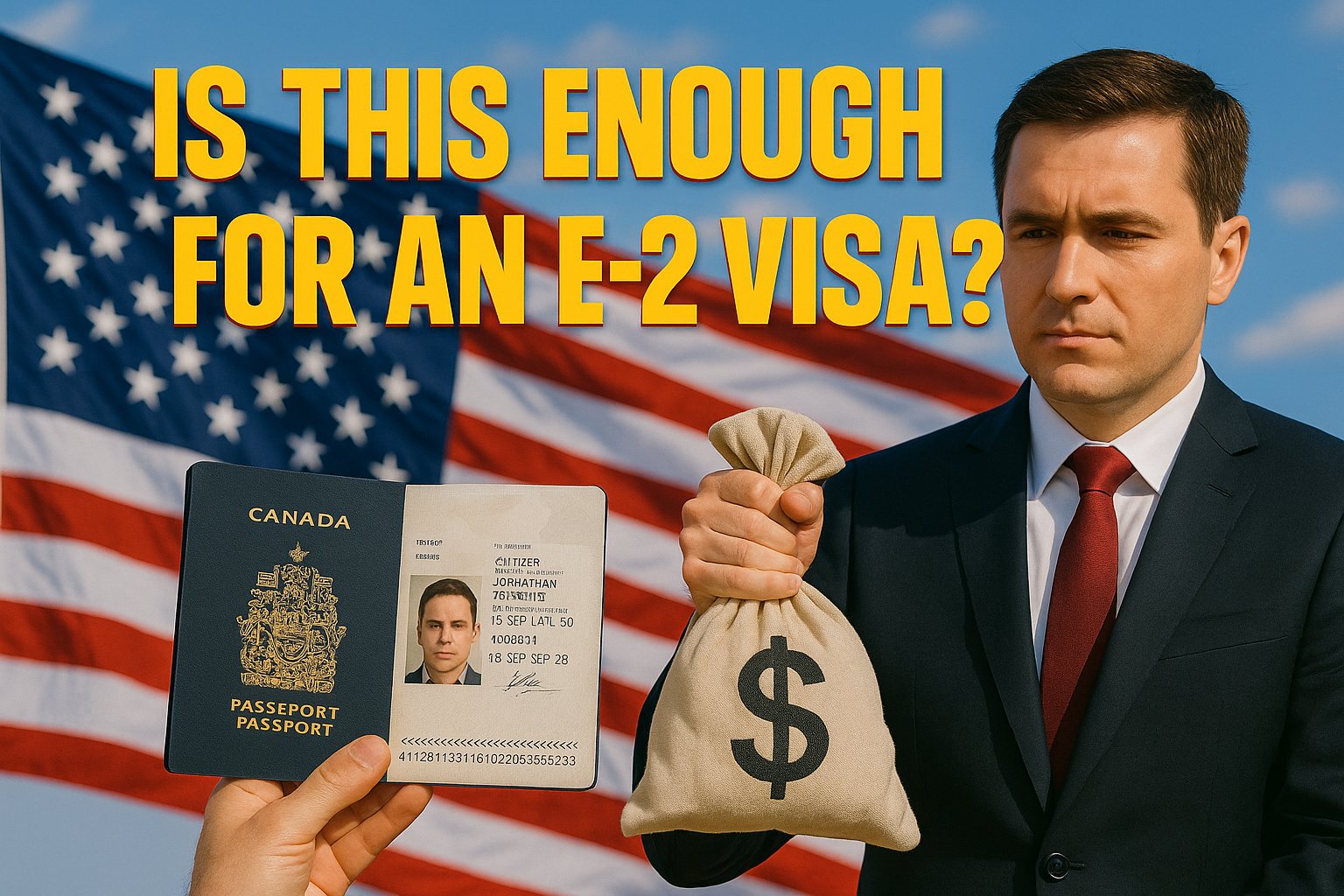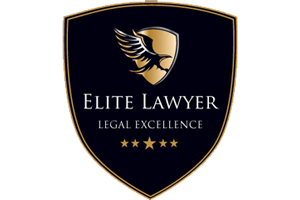- Free Consultation: (213) 251-5533 Tap Here to Call Us
Understanding the E-2 Visa Essentials: What Investors Need to Know Before Applying

The E-2 visa is a nonimmigrant visa that allows nationals of countries with which the United States maintains a treaty of commerce and navigation to enter the United States to develop and direct the operations of an enterprise in which they have invested, or are actively in the process of investing, a substantial amount of capital. The E-2 classification is authorized under Section 101(a)(15)(E) of the Immigration and Nationality Act (INA), and its implementation is governed by regulations found at 8 C.F.R. § 214.2(e) and 22 C.F.R. § 41.51. This visa is an attractive option for entrepreneurs and investors seeking to manage and grow a business in the United States without pursuing permanent residency.
Nationality of a Treaty Country
To qualify for an E-2 visa, the applicant must be a national of a treaty country, which is defined as a country with which the United States maintains a qualifying treaty of commerce and navigation. As of now, the following countries have qualifying treaties with the United States for E-2 visa purposes (subject to change depending on treaty status and geopolitical developments):
- Albania
- Armenia
- Austria
- Belgium
- Bosnia and Herzegovina
- Bulgaria
- Croatia
- Czech Republic
- Denmark
- Estonia
- Finland
- France
- Georgia
- Germany
- Greece
- Ireland
- Italy
- Kosovo
- Latvia
- Lithuania
- Luxembourg
- North Macedonia
- Moldova
- Montenegro
- Netherlands
- Norway
- Poland
- Romania
- Serbia
- Slovakia
- Slovenia
- Spain
- Sweden
- Switzerland
- Turkey
- Ukraine
- United Kingdom
- Bangladesh
- Japan
- Jordan
- Kazakhstan
- South Korea
- Kyrgyzstan
- Mongolia
- Pakistan
- Philippines
- Singapore
- Sri Lanka
- Taiwan
- Thailand
- Tonga
- Bahrain
- Cameroon
- Egypt
- Israel
- Jordan
- Liberia
- Morocco
- Oman
- Senegal
- Tunisia
- Argentina
- Bolivia
- Canada
- Chile
- Colombia
- Costa Rica
- Ecuador
- Grenada
- Honduras
- Jamaica
- Mexico
- Panama
- Paraguay
- Suriname
- Trinidad and Tobago
Notably, some large countries are not E-2 eligible, including:
- China (PRC, not including Taiwan)
- India
- Brazil
- Russia
- South Africa
- Nigeria
The citizenship requirement is strictly enforced and must be established through documentation such as a valid passport. The enterprise in question must be a real and operating commercial entity that produces goods or services for profit. It cannot be a passive investment such as undeveloped land or stock holdings. The investment must be substantial, which is a relative term assessed based on the total cost of the enterprise and the percentage of the applicant’s investment. While there is no fixed minimum amount, generally speaking, investments under $100,000 are subjected to increased scrutiny and are less likely to be approved unless the applicant can demonstrate that the business is low-cost and the investment represents a high percentage of that cost.
The applicant must demonstrate that they have control over the investment funds and that those funds are at risk in the commercial sense. The investment must be irrevocably committed to the business and subject to partial or total loss if the business fails. Funds must be lawfully acquired, and the source of funds must be fully documented through bank records, tax returns, sale of property, loan agreements, and other relevant financial documents. Gifts and loans from family members are allowed, provided they are properly documented and the terms of repayment do not render the investor a mere nominal owner.
Another critical requirement is that the applicant must be coming to the United States to develop and direct the enterprise. This is typically shown by at least 50% ownership of the enterprise or possession of operational control through a managerial position or other corporate device. Merely being a skilled worker or a lower-level manager will not suffice for E-2 purposes. The applicant must show that they will be responsible for the overall direction and development of the business.
Applicants must also establish that the business is not marginal. A marginal enterprise is one that does not have the present or future capacity to generate more than enough income to provide a minimal living for the investor and their family. The adjudicating officer will review business plans, projected income statements, and historical financial data to determine whether the enterprise has the capacity to support more than just the investor. A comprehensive business plan is essential, particularly for startups, and should include five-year financial projections, market analysis, hiring plans, and an explanation of how the investment will lead to meaningful economic activity.
Applying for an E-2 visa involves submitting a visa application and supporting documentation to the appropriate U.S. consulate abroad. For applicants already in the U.S. in another lawful nonimmigrant status, a change of status to E-2 may be requested with USCIS. However, it is important to note that status granted through USCIS does not confer a visa stamp, and the investor will need to apply for the E-2 visa at a U.S. consulate before reentering the country if they depart.
The E-2 visa is granted initially for up to five years and may be extended in five-year increments indefinitely, as long as the investor continues to meet the requirements. Spouses and unmarried children under 21 may accompany the principal investor and can apply for dependent E-2 visas. Spouses of E-2 visa holders may apply for work authorization by filing Form I-765.
Despite the flexibility and benefits of the E-2 visa, there are several challenges applicants should be aware of. First, not all countries qualify. Nationals of countries without a treaty cannot use this visa category. Second, the “substantial investment” requirement is inherently subjective and may be inconsistently interpreted by consular officers, especially in consulates with high denial rates or in jurisdictions without established E-2 adjudication guidelines. Third, applicants bear the burden of proving the legitimacy and viability of the business. If the consulate or USCIS concludes that the business plan is speculative, the enterprise is not operational, or the funds are not truly at risk, the application will be denied.
Moreover, consular denials under INA § 214(b), which applies to nonimmigrant visa refusals, are generally not subject to administrative or judicial review, and no formal appeal process exists. This underscores the importance of submitting a thoroughly prepared and well-documented application from the outset. Finally, the E-2 visa is a nonimmigrant visa with no direct path to permanent residence. While some E-2 investors may eventually adjust status through other employment-based or family-based immigrant visa categories, the E-2 itself does not lead to a green card and requires the investor to maintain an intent to depart the U.S. upon termination of E-2 status.
In sum, the E-2 visa offers a practical solution for treaty country nationals to invest in and run a business in the United States. Success depends heavily on careful preparation, robust documentation, and a clear demonstration that the investment is substantial, the business is viable, and the investor has control and intent to develop the enterprise. Given the potential challenges and discretionary nature of the adjudication process, it is advisable to seek experienced legal counsel when preparing an E-2 application.
If you are unsure about how your immigration status, it is advisable to consult with an experienced immigration attorney before taking any action. As one of the most established firms practicing exclusively in the area of immigration law, our firm has successfully helped our clients obtain temporary work permits, green cards, and citizenship for generations. Note that the information provided in this article and website is intended for general information purposes only and should not be construed as legal advice. For additional information or information regarding other immigration matters, please call Attorney Thomas M. Lee for a free consultation at 213-251-5533








